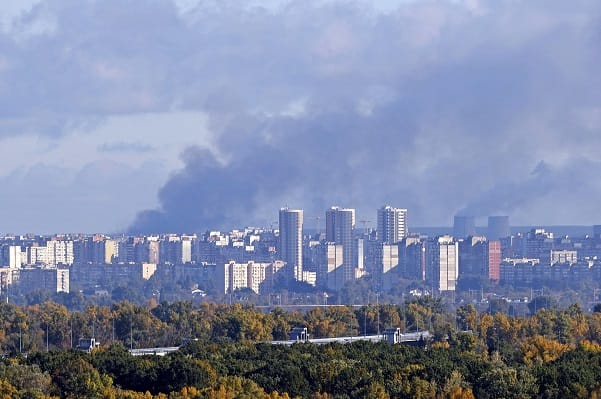A major new report from LSE IDEAS, the London School of Economics’ foreign policy think tank, assesses the Russian and Ukrainian sides’ relative economic strengths and vulnerabilities in the war.
Authored by Dr. Luke Cooper, a member of LSE IDEAS’ Conflict and Civicness Research Group, for the Peace and Conflict Resolution Evidence Platform, PeaceRep, the report argues that a focus on the “home front” reveals the potential brittleness and fragility of the Russian war economy.
Boosted by Western financial support, with funding secure until 2027 and unprecedented tax revenue mobilisation, Ukraine’s economic strengths and resilience tends to be understated. As it stands, Ukraine is in a surprisingly strong negotiating position.
Developing this argument, the substantial 60-page report shows that, Russia’s war effort is heavily dependent on oil and gas revenues and is facing acute fiscal pressure, with a looming credit crunch and potential systemic banking crisis.
Both sides have adopted “military Keynesian” policies — war spending as economic stimulus — but with divergent consequences: Ukraine’s democratic checks and EU aspirations counterbalance risks of militarised rent-seeking, while Russia’s autocratic centralisation entrenches elite interests in prolonging and sustaining the war.
As talks between the US and Russia gain momentum, the report warns that Ukraine risks being side-lined. Peace talks should be inclusive and grounded in rights-based principles, including independent human rights monitoring in occupied territories.
Cooper concludes that while neither side is presently positioned for “total victory”, Russia’s internal vulnerabilities may change its negotiating calculus in the year ahead.
Cooper, Associate Professorial Research Fellow in International Relations and Director of PeaceRep’s Ukraine programme said, “Despite fighting a vastly more powerful adversary, Ukraine’s wartime economy has proven surprisingly resilient.
“Sustained by the inflow of external aid and the mobilisation of the Ukrainian people, Ukraine’s wartime economy has helped level the playing field.
“Russia, by contrast, is betting its war effort on volatile oil rents and a fragile financial system that is coming under considerable strain. Even in the face of the Trump administration’s apparent pivot towards the Russian side, Ukraine and its European allies hold more ‘cards’ than many, including President Trump, seem to believe.”

